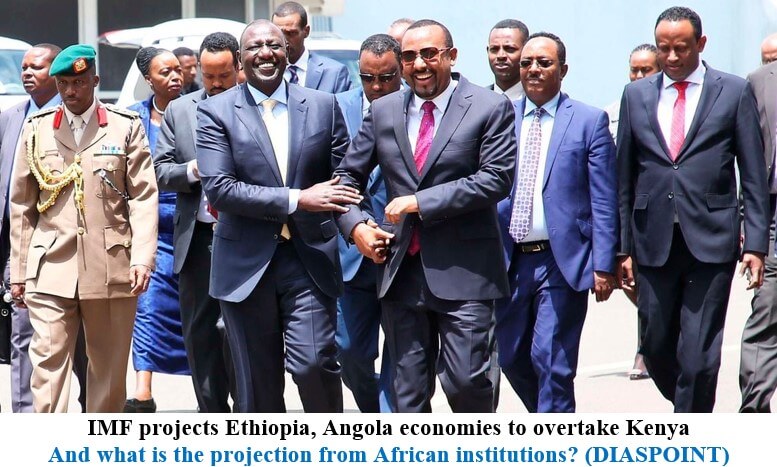IMF projects Ethiopia, Angola economies to overtake Kenya
Kenya is set to be replaced as the third-largest economy in sub-Saharan Africa by Angola and Ethiopia, weakening the East African country’s power to tap investors enticed with a population that has more cash to spend.
Faster GDP growth in Angola and Ethiopia will see Kenya relegated to number five in sub-Saharan Africa’s economic rankings, according to projections by the International Monetary Fund (IMF) that show Nigeria as the largest economy on the continent.
A return to growth linked to higher oil prices saw Angola overtake Kenya last year, according to the IMF, after the nation—which is the continent’s second-largest oil producer after Nigeria—ended years of recession.
Ethiopia is this year set to replace Kenya from position four on the back of easing armed conflict in the nation and the continuation of the ambitious economic reform drive aimed at opening up one of Africa’s fastest-growing but most closed economies.
The IMF expects the economies of Ethiopia and Angola this year to expand by 13.5 percent and 8.6 percent respectively on dollar terms.
However, Kenya is projected to record a slower growth of 2.4 percent in the review period as the country grapples with the aftershocks of the Covid-19 pandemic, drought, election jitters and disruption of global supply chains by the Russia-Ukraine war.
Sub-Saharan Africa accounts for 46 of the continent’s 54 countries, excluding giants like Morocco and Egypt.
The relegation of Kenya to position five will weaken its hand in the race for foreign direct investment (FDI), which is critical in easing the growing youth unemployment on the continent.
So far, South Africa and Ethiopia have fared better than Kenya in attracting foreign investments eyeing a population that has more cash to spend.
The IMF projects Kenya’s GDP to hit $117.6 billion this year, behind Nigeria ($574 billion), South Africa ($422 billion), Angola ($135 billion) and Ethiopia ($126.2 billion).
From mobile phones, cars, food, and clothes to financial services and entertainment, multinational companies are homing in on lucrative new markets as millions of Africans aspire to claw their way out of still widespread poverty.
African countries that promise to expand middle-class buyers with swelling disposable incomes are in a pole position to attract foreign investments. Read More from original source







